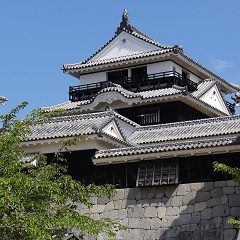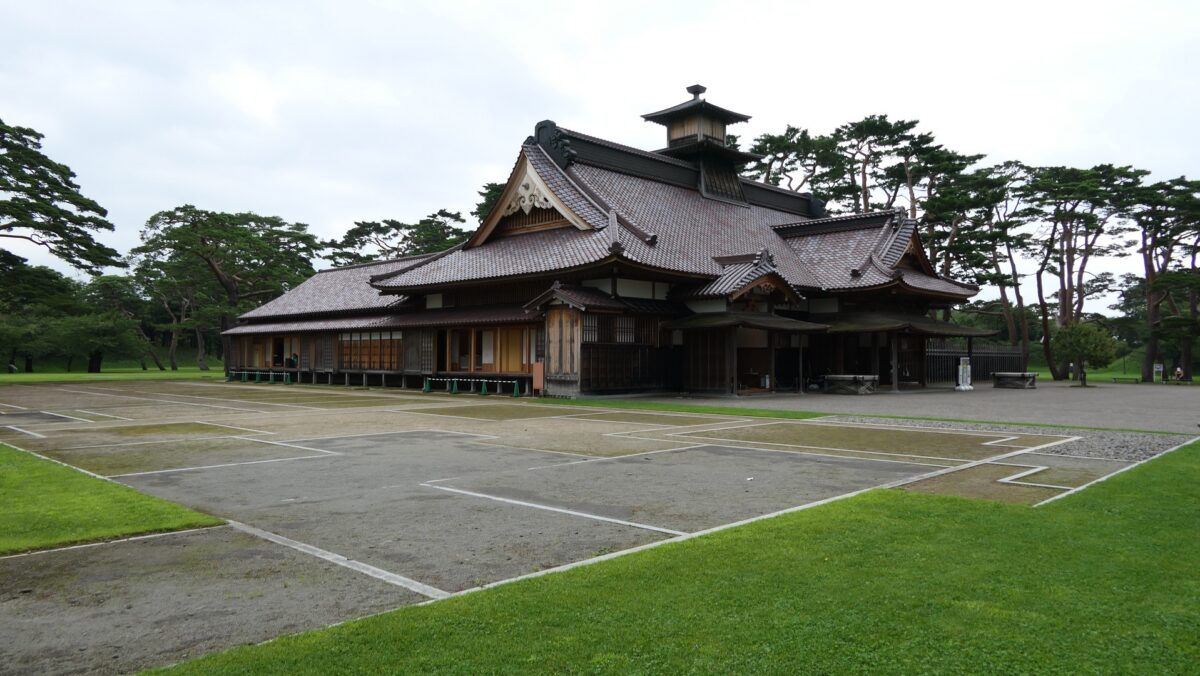Features
Entering Center of Ruins by going across Moats
Today, the ruins of Goryokaku have been designated as a National Special Historic Site and are one of the most popular tourist spots in Hakodate City. They are also famous for cherry blossoms. There are two entrances after crossing the bridges over the water moats, which are two of the three original entry ways. People usually enter the front entrance which has a good view.
The aerial photo around the castle
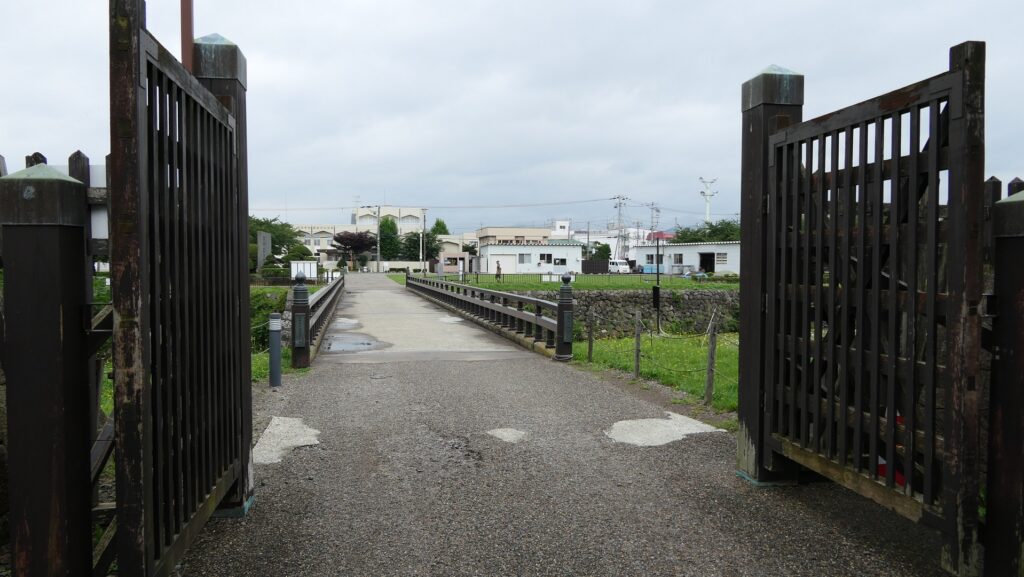
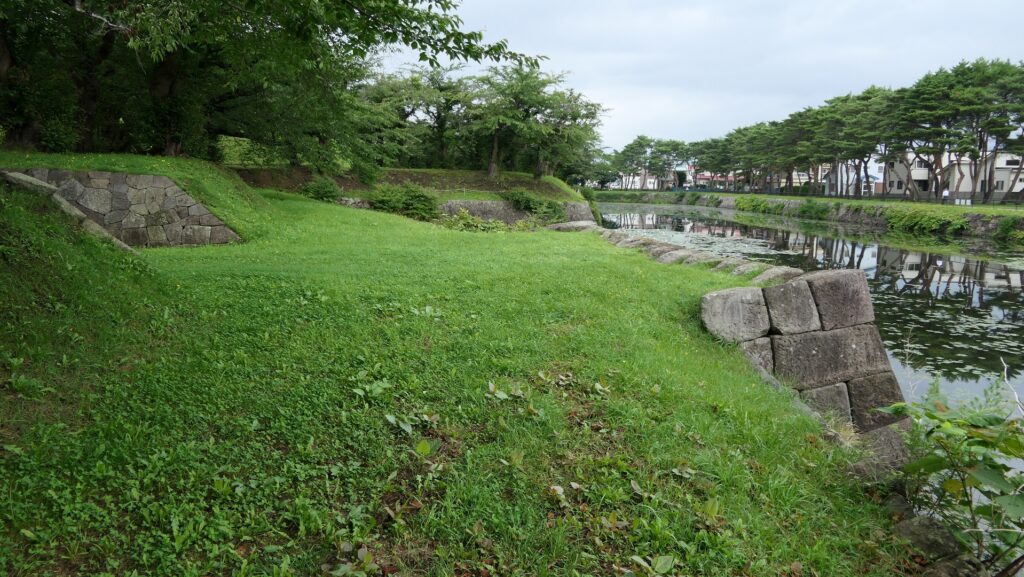
You need to go across two bridges to reach the front gate. The first bridge goes to the only ravelin before the second one for the gate. Gorgeous stone walls incorporating the Hanedashi system surround the area because it was also the original front side.


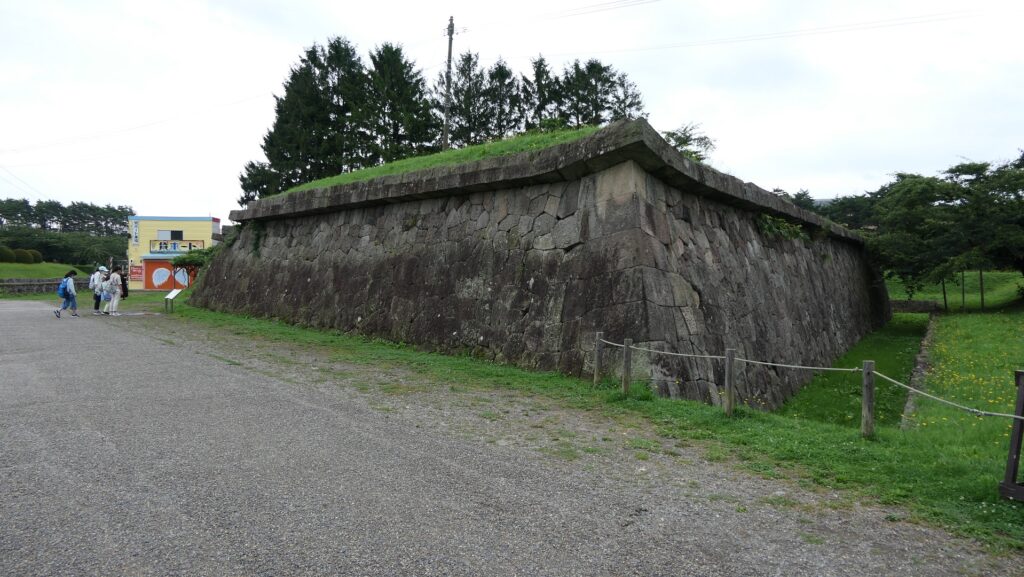
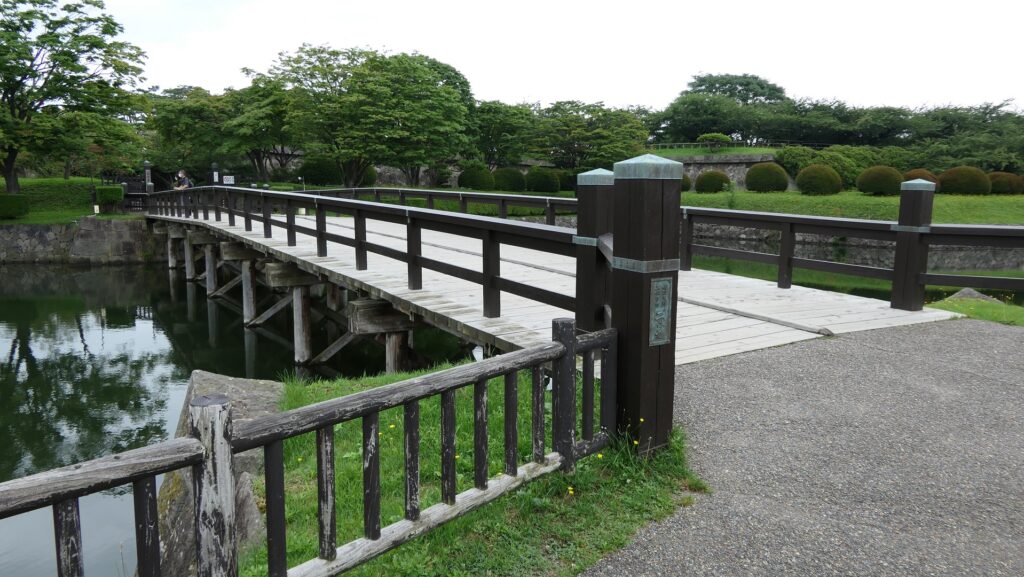
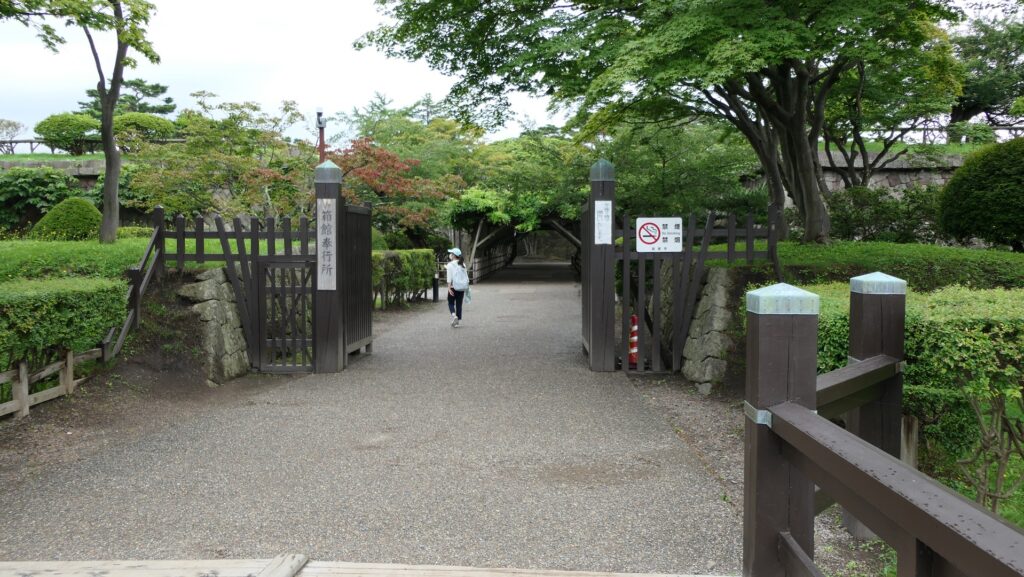
After going through the gate, you can see a “blindfold” wall called Mikakushi-rui, which made sure visitors could not see inside and the defenders could protect the castle from enemies attacks easily. There are three behind the original entrances.
Unique blindfold walls
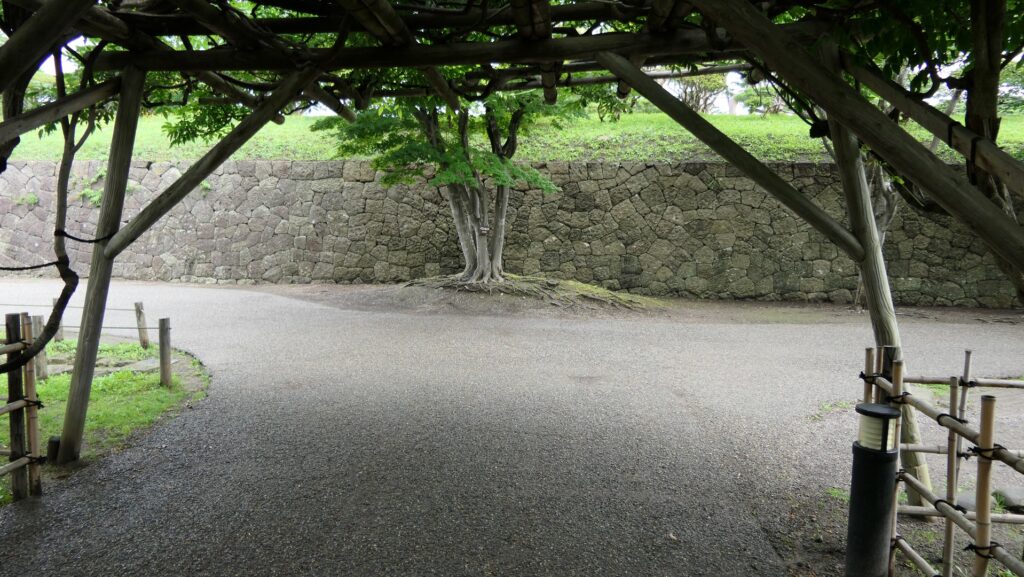
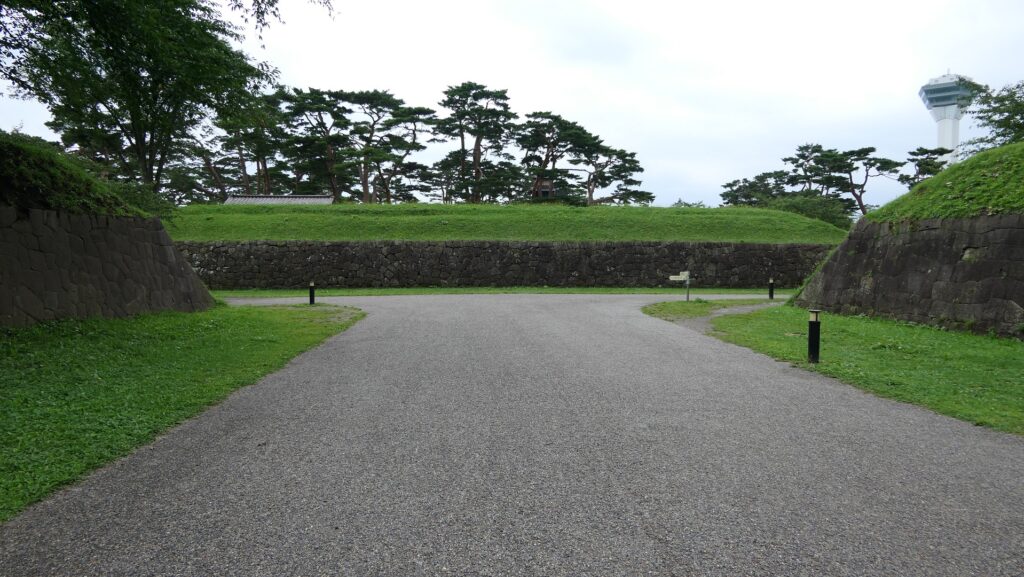
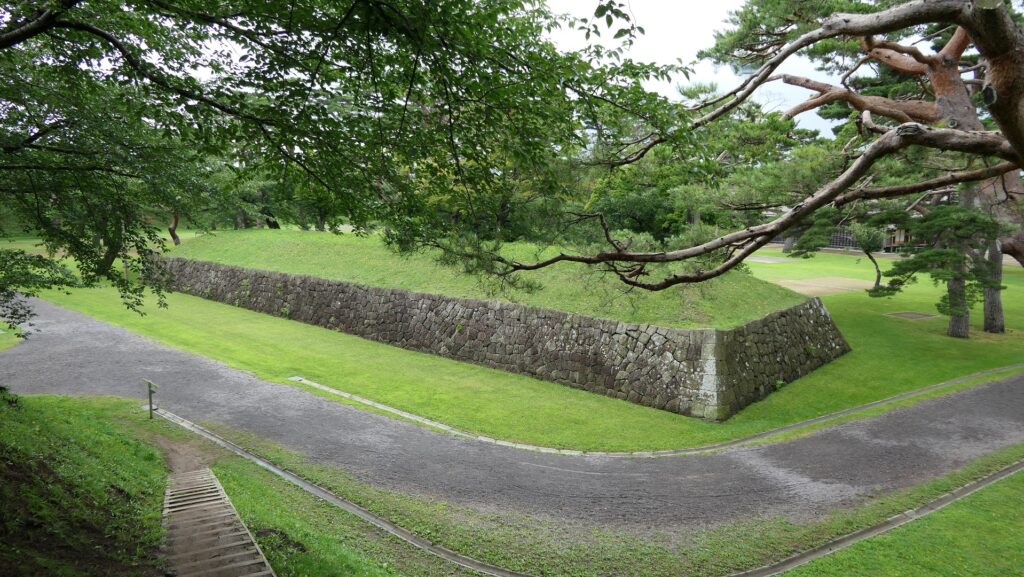
Restored Hakodate Magistrate’s Office
If you go around the wall, you will see the restored Hakodate Magistrate’s Office building in the center. Actually, one third of it was restored using the original methods in 2010 based on old photos, remaining documents, and excavation discoveries. The other two thirds are flatly exhibited on the ground.
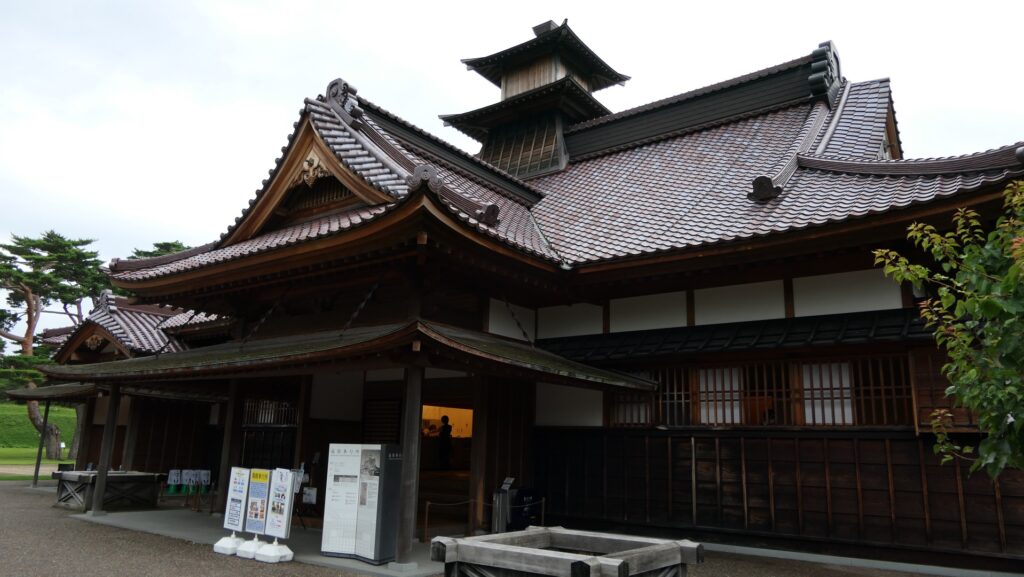

You can enter the building to see what it was like in the past. About half of its interior is a large hall which was used for official ceremonies and the magistrate’s working room. The rest is the officers’ rooms which exhibit the history of the office and Gryokaku. An interesting point is three empty jars buried under the entrance step, which were unearthed in the excavation. Their purpose is unknown, but some speculate they were used to make a resonant sound when people walked on the step.
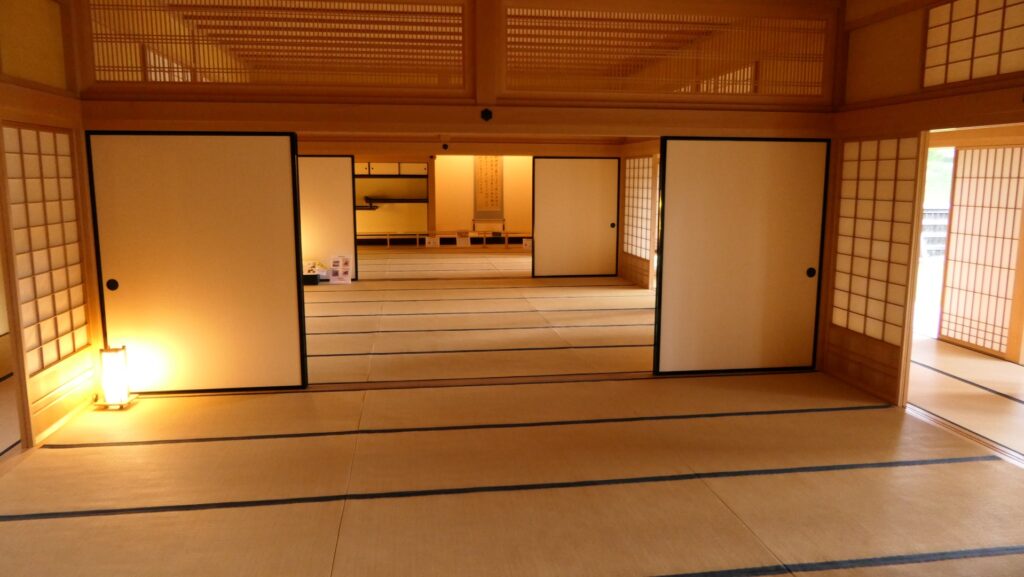
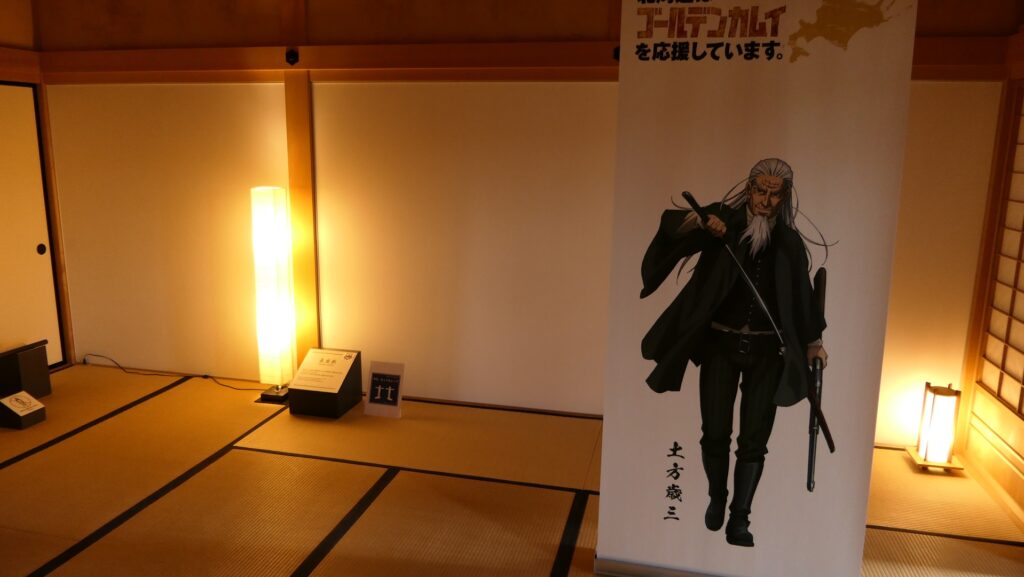
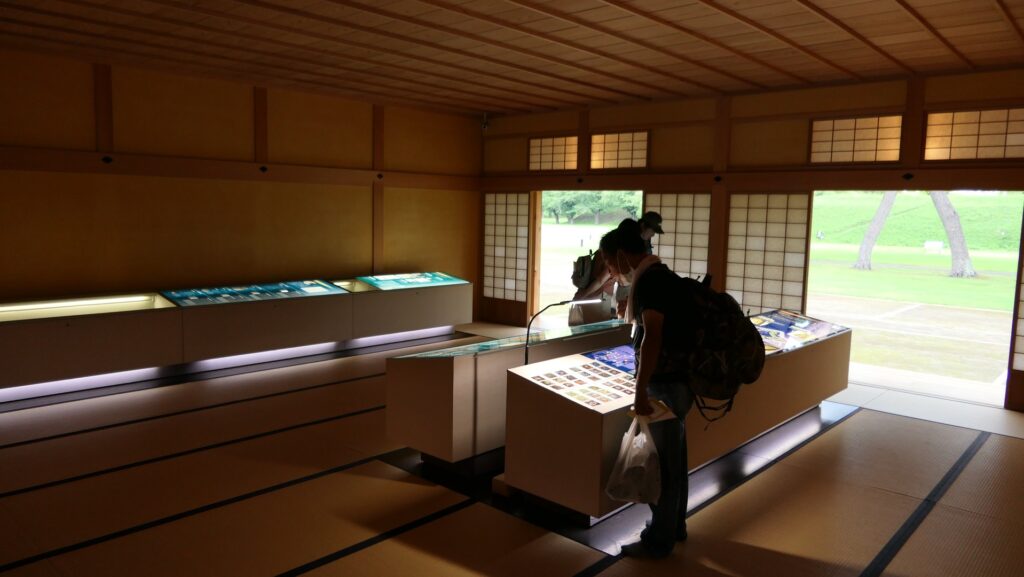

Walking around Bastions
You can also climb up or down or walk around the five large-scale bastions basically made of soil. In fact, it is uncertain if they had cannons inside or on the bastions from the first stage of Goryokaku. This may be one of the reasons that one of the bastions has a slope the escaping force built and used to carry cannons to the top of it. There are also ruins of a powder magazine inside another bastion, which are thought to have been built by the force as well.
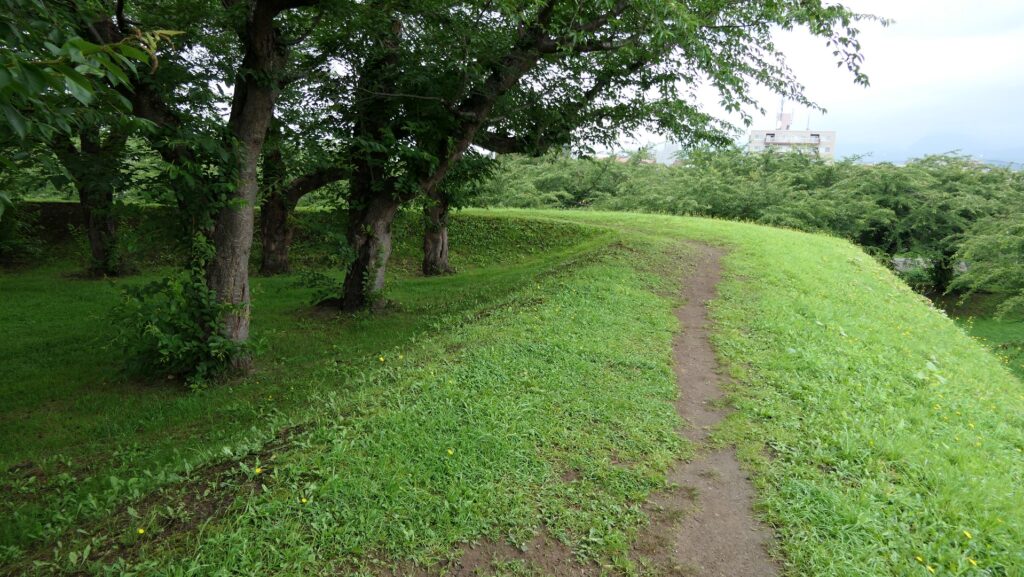
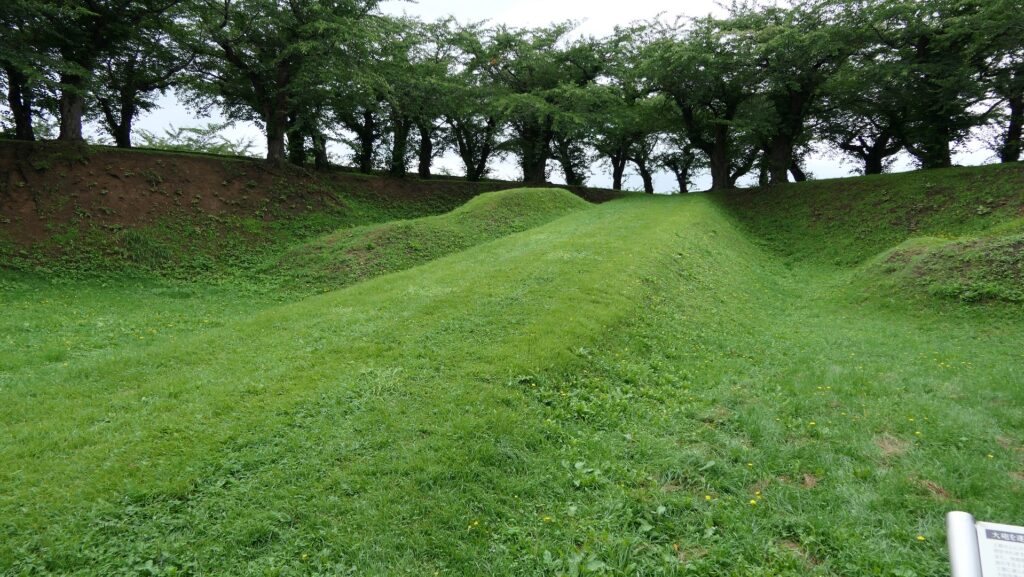

There is a warehouse, which is the only remaining original building of Goryokaku, next to the administrative office and the rest house, which are built like original warehouses. The remaining one is only open to the public during certain periods. Two barrels of a gun are exhibited beside these buildings. One of them belonged to the Choyo which was sunk by the escaping force in the Battle of Hakodate, but pulled from the sea later. The other one was used by the force in another position other than Goryokaku in the battle.
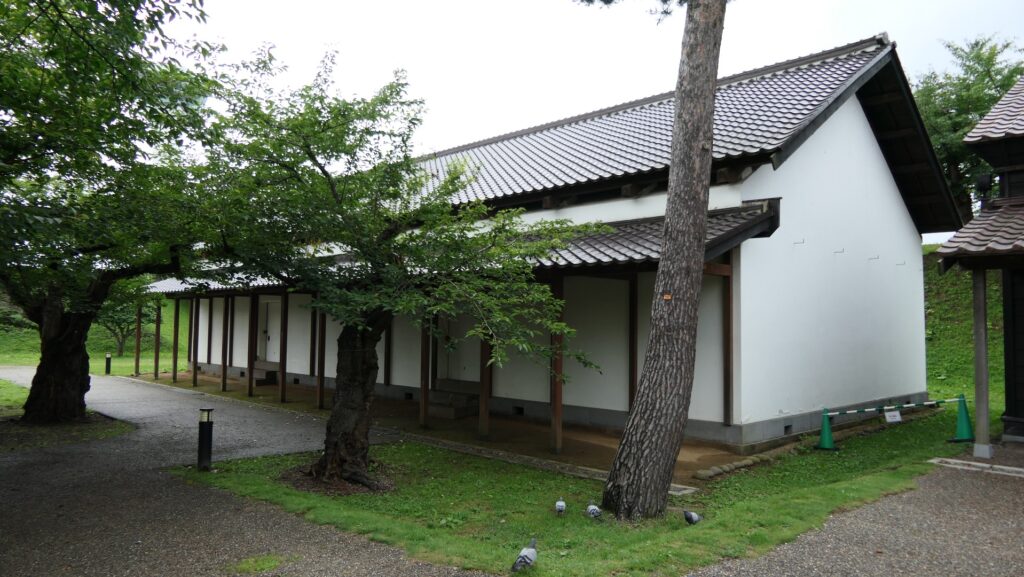
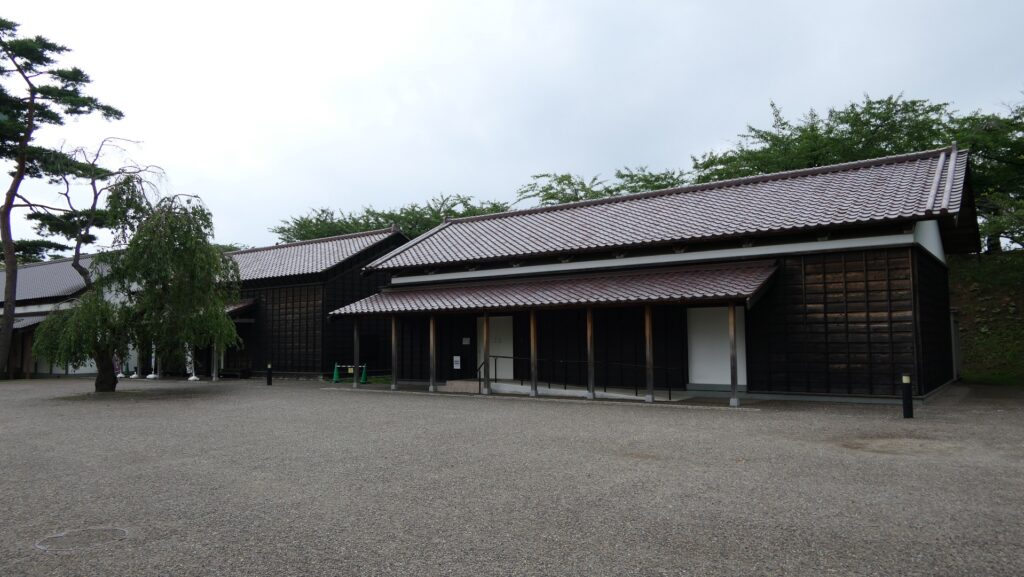

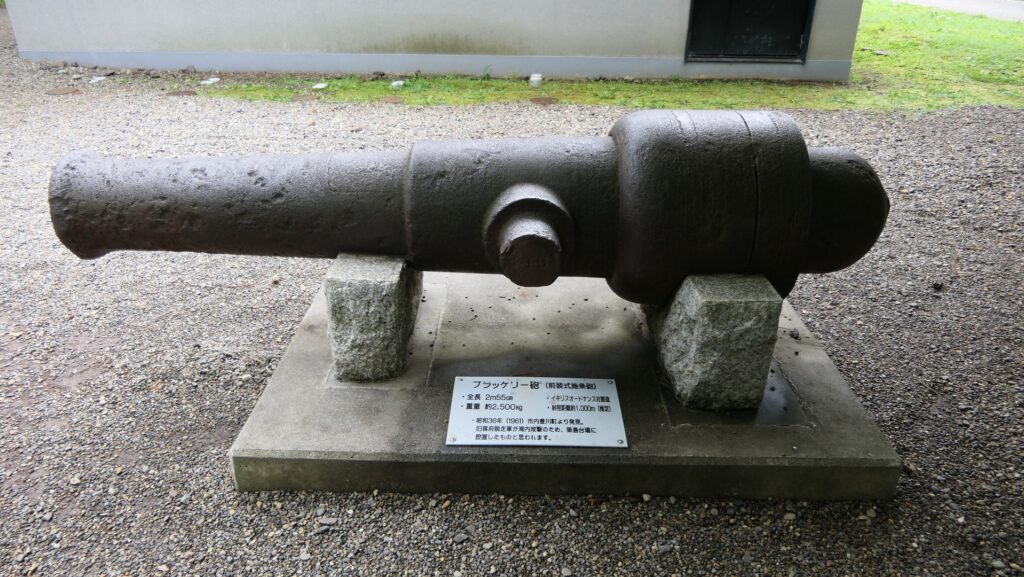
To be continued in “Goryokaku Part3”
Back to “Goryokaku Part1”
